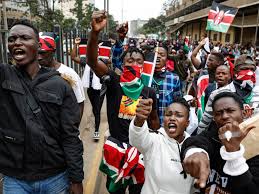
In a significant turn of events, Kenya’s High Court has suspended a police ban on protests in Nairobi, asserting citizens’ constitutional right to peaceful demonstration. This ruling comes amidst a month-long wave of unrest that has gripped the nation, resulting in at least 50 fatalities since mid-June.
The court’s decision, characterized as a “conservatory order,” temporarily halts the enforcement of the ban pending a final ruling scheduled for July 29. This development precedes a planned march to the president’s office, where demonstrators intend to demand his resignation over allegations of poor governance.
Kenya’s political landscape has been turbulent, with recent protests initially focusing on opposition to a controversial finance bill. The situation escalated dramatically when protesters stormed parliament, prompting a police response that has since been scrutinized for alleged brutality.
In response to mounting pressure, President William Ruto has made significant concessions, including the dismissal of nearly his entire Cabinet and a pledge not to sign the contentious finance bill. However, these actions have not fully quelled public discontent.
As Nairobi braces for potential further demonstrations, the economic toll of the unrest is becoming apparent. Government spokesperson Isaac Mwaura reports losses of approximately 6 billion Kenyan shillings due to the ongoing protests, highlighting the far-reaching implications of this political crisis.
